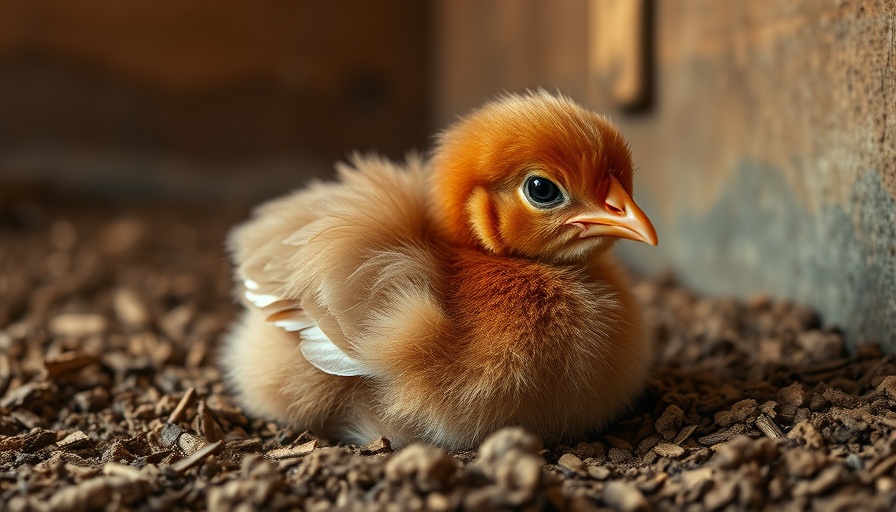
Understanding Coccidiosis in Poultry
Coccidiosis is an intestinal disease caused by various species of protozoa, specifically Eimeria, which are highly infectious and can lead to severe health complications if not addressed promptly. In young chickens, particularly those around five weeks old, the symptoms can manifest as diarrhea, lethargy, and poor growth. Early recognition and treatment are crucial for a successful recovery and to mitigate loss within a flock.
Symptoms to Monitor in Chicks
Chickens infected with coccidiosis may display a range of symptoms. Watch for signs such as blood in the feces, ruffled feathers, decreased appetite, and withdrawal from the group. It's essential to monitor these symptoms closely as they indicate digestive distress and potential dehydration. Addressing these symptoms early can reduce mortality rates and promote recovery.
Effective Treatments Available
For treatment, various medications are effective. Anticoccidial drugs like amprolium and toltrazuril are commonly used and can be administered through the water supply. However, it’s vital to consult a veterinarian before initiating treatment to ensure the proper dosage and method are applied, considering the chick's age and health status.
Preventative Measures for Future Flocks
Preventing coccidiosis is equally important as treatment. Implementing good sanitation practices in the coop, providing clean water, and ensuring adequate nutrition can significantly reduce the likelihood of outbreaks. Vaccination against coccidiosis can also be a proactive strategy for maintaining flock health over time.
Conclusion: Prioritize Chick Health
Recognizing and treating coccidiosis in young chickens is vital for their health and the overall wellbeing of your flock. By understanding the symptoms and treatments available, along with implementing preventative measures, avian keepers can foster healthier environments for their birds.
 Add Row
Add Row  Add
Add 




Write A Comment